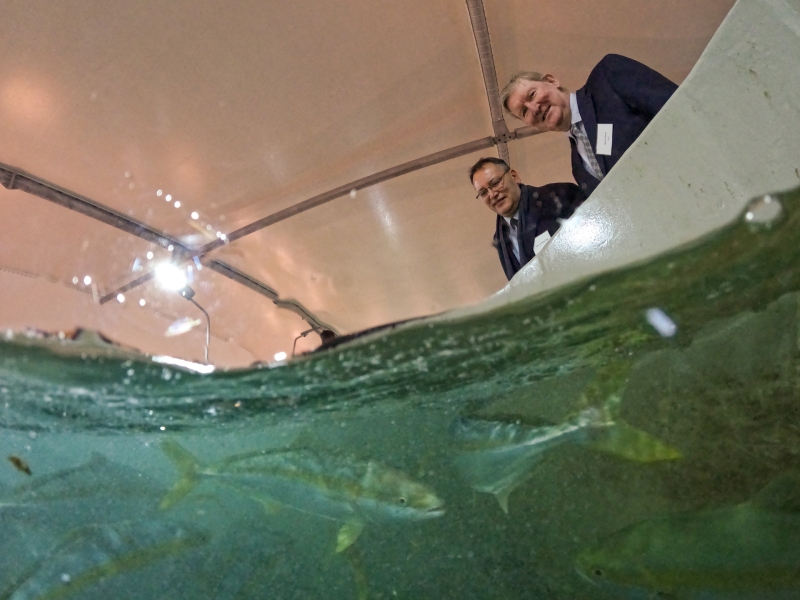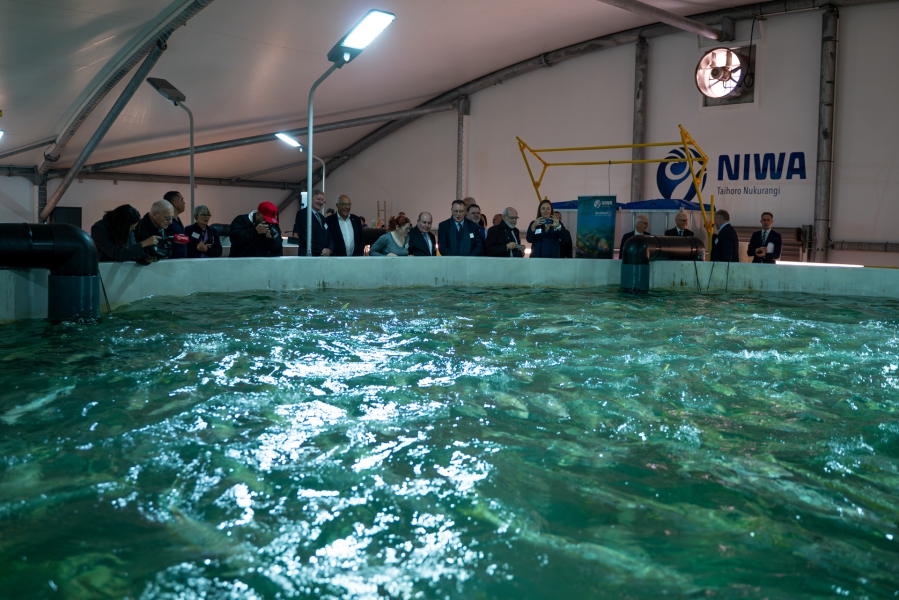Commercial-scale production of kingfish - a high-value, white-fleshed finfish to complement salmon - is now a reality in New Zealand.
The kingfish are grown at NIWA's state-of-the-art land-based farm, which was officially opened today [13 August] by Whangārei MP Hon Dr Shane Reti.
The facility at NIWA’s Northland Aquaculture Centre in Ruakākā has been designed to demonstrate the commercial viability of land-based aquaculture, and it can produce up to 600 tonnes of kingfish each year.
NIWA’s Chief Executive, John Morgan says the farm introduces a new species to help New Zealand meet the huge global demand for seafood, and it will help the industry reach its ambitious target of $3 billion by 2035.
“We saw a clear gap in the market for an on-land farm that produces commercial quantities of high-quality fish. This new facility uses a recirculating aquaculture system [RAS], which offers superior environmental and economic performance, and full control over all aspects of production,” said Mr Morgan.
“Kingfish are known for their rapid growth and efficient conversion of feed to flesh. Our fish grow from a 1mm egg to a 3kg market-sized fish in less than 12 months. Our extensive research and experimentation has identified the conditions that maximise the health and welfare of the fish.”
The RAS is a joint venture by NIWA and the Northland Regional Council, which constructed the premises that are leased to NIWA, and it represents a significant investment in Northland’s economy.
“Beyond the jobs created and revenue generated for our community, this venture has helped to put Northland on the map in terms of forward-thinking, environmentally friendly farming,” said Northland Regional Council Chairman Geoff Crawford.
“It sets a great precedent, and we hope that the success of this venture will spark investment in larger RAS operations, and unlock the economic growth potential of other marine species,” he said.
NIWA and Northland Regional Council see the farm as an inaugural project that will catalyse New Zealand’s onshore aquaculture industry, being a proof-of-concept that drives similar privately and publicly funded farms around the country.
“Chefs and local restaurant suppliers sing the praises of the quality of our kingfish, and we have had significant interest from the food sector and commercial partners,” said Mr Morgan.



